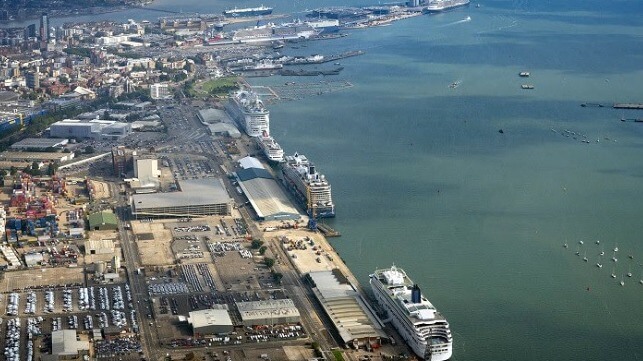Domestic Shipping to Enter the UK ETS Scheme in 2026

The UK government announced today a series of steps for the coming years to expand its Emission Trading Scheme, including for the first time bringing domestic shipping into the program. Experts highlight that it is another example of individual countries taking steps to reduce emissions in the lack of international agreements for industries such as shipping that reach beyond domestic borders.
The announcement that shipping will be required to participate in the program starting in 2026 comes as the International Maritime Organization struggles to reach a consensus at the ongoing International Maritime Organization’s Marine Environment Protection Committee (MEPC) meeting. According to the announcement, the UK government chose to put the announcement out now to provide shipping and other industries time to begin planning for the changes that will begin in 2024 and be phased into the program over the next few years.
The UK ETS was launched in 2021 to replace the UK’s participation in the EU ETS. The scheme incentivizes decarbonization through a process of buying and selling emissions allowances, which companies must obtain for every ton of emissions they produce each year. Companies that are successful in reducing their emissions can sell unused allowances to other firms.
The domestic shipping industry will enter the program in 2026 in line with the overall goal to bring high-emitting sectors into the program to encourage their efforts to decarbonize and invest in cleaner alternatives. The scheme will apply to larger maritime vessels, which the scheme authority is defining as vessels above 5,000 gross tons. Today’s announcement did not supply additional details about how the scheme will be applied to shipping.
The UK Chamber of Shipping responded to the announcement saying that it is a significant step forward in the efforts to reach net zero emissions. Like many organizations, they however said that they believe international agreements remain the best way to achieve change across the sector.
“It is important that as the details of the scheme become clear it helps, rather than hinders, the drive towards net zero,” the Chamber said in its statement. “This means ETS funds raised from domestic shipping must be used to aid the transition to net zero for the sector. This should include supporting the development of zero-emission vessels, fuels and technology, and associated port infrastructure.”
In addition to shipping, the scheme authority reported that the UK’s waste incineration and waste-to-energy sectors will also be added to the scheme in 2028. Details on their involvement are still however to be resolved through further consultations. The aviation industry will also experience a phased removal of its allowances starting in 2026.

that matters most
Get the latest maritime news delivered to your inbox daily.
Intending to accelerate the transition away from costly fossil fuels, the UK also announced a series of additional changes for the program based on consultations and initial experience in operating the system. Starting in 2024, industries already involved in the scheme will be required to bring their emissions down at a quicker pace than originally prescribed. To ease this transition, however, the government also announced that it will extend the current level of free allocations of allowances to 2027. Extra allowances will also be provided between 2024 and 2026.
The goal of the overall program however remains to incentivize industries away from costly fossil fuels and encourages them to cut their carbon footprint by investing in energy efficiency and cleaner, or renewable technologies, which in turn can boost energy security. The UK, Scottish and Welsh governments will all participate in the next phase of the ETS.
